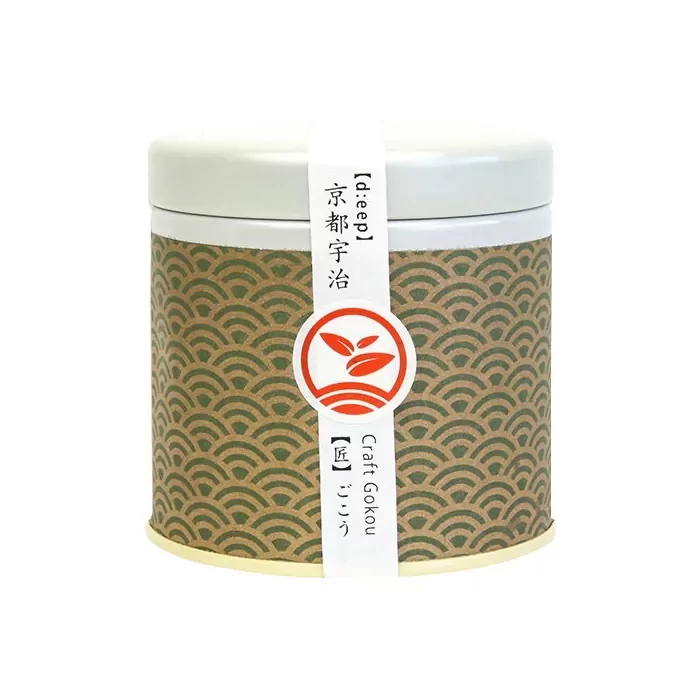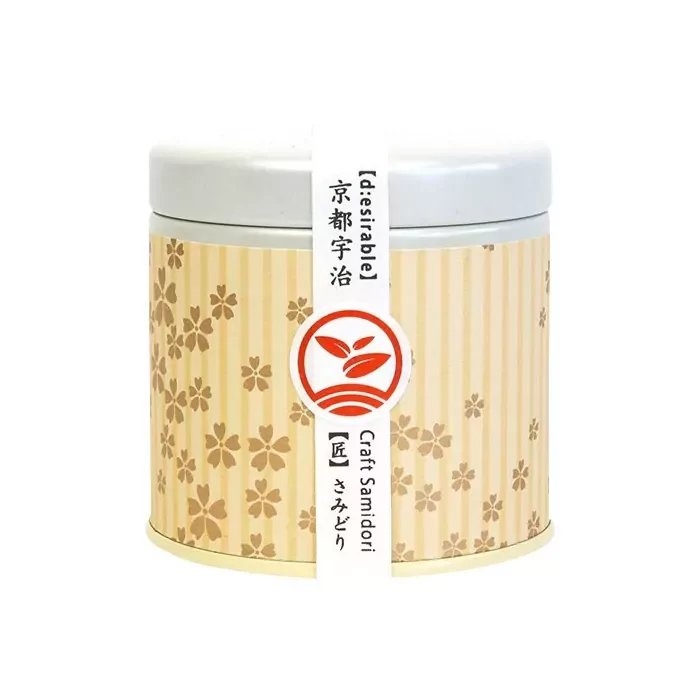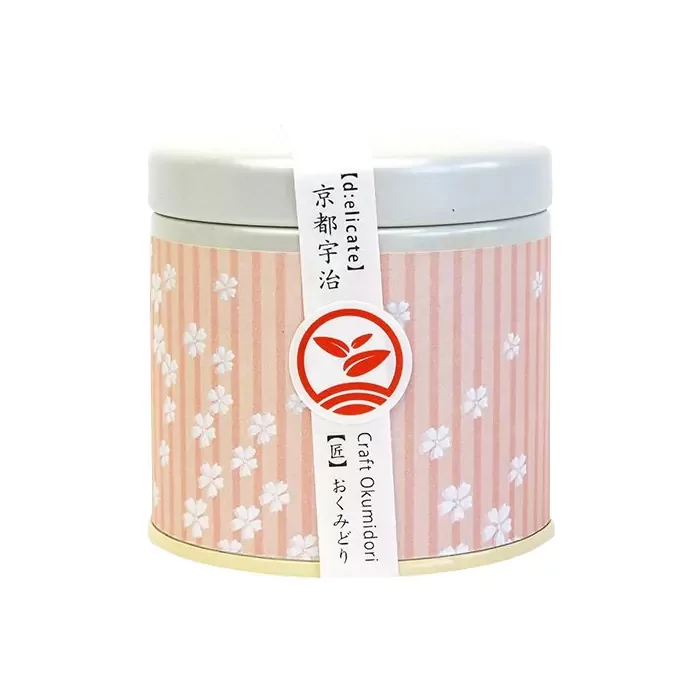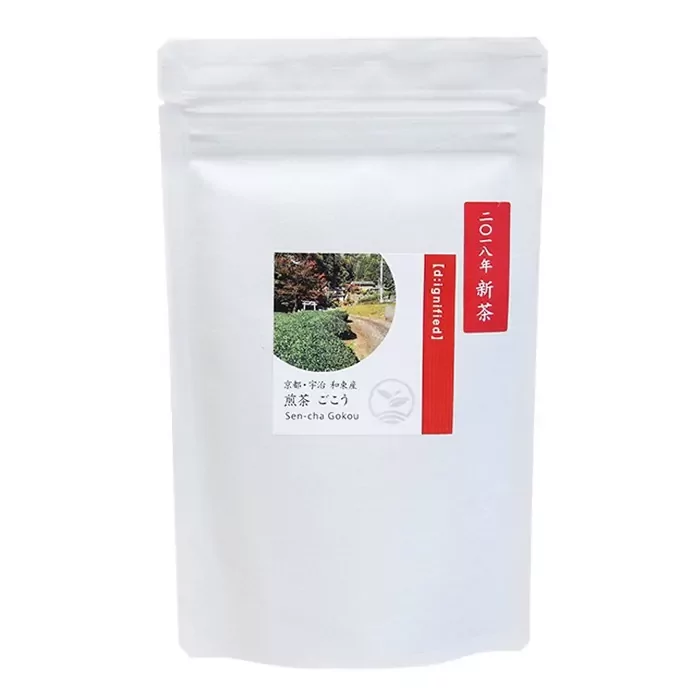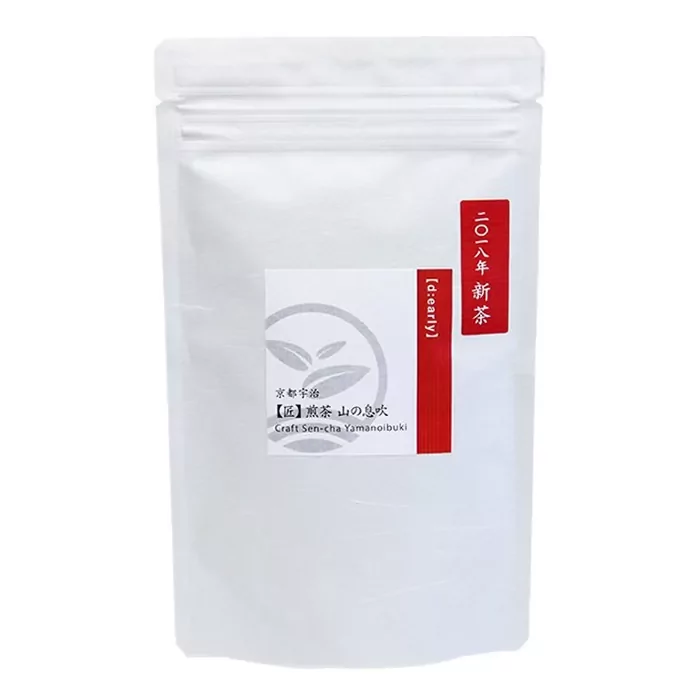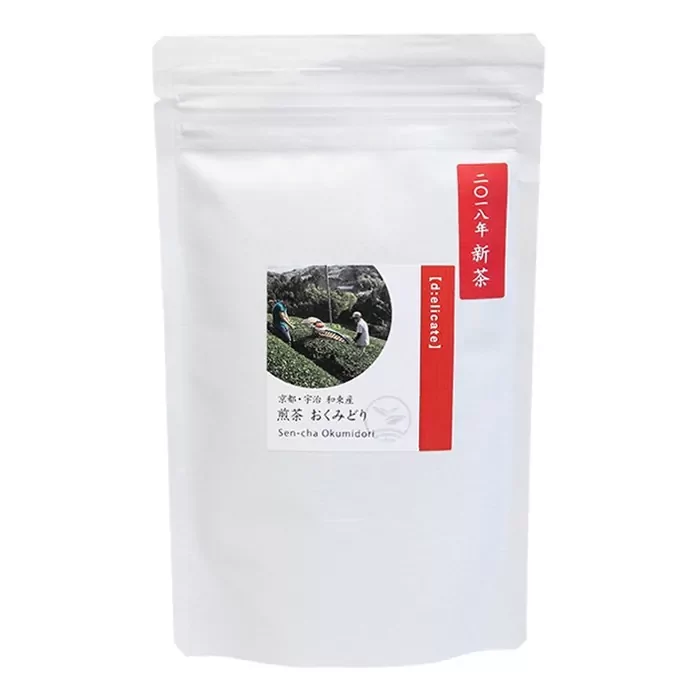Hiking in the Town of Wazuka with d:matcha
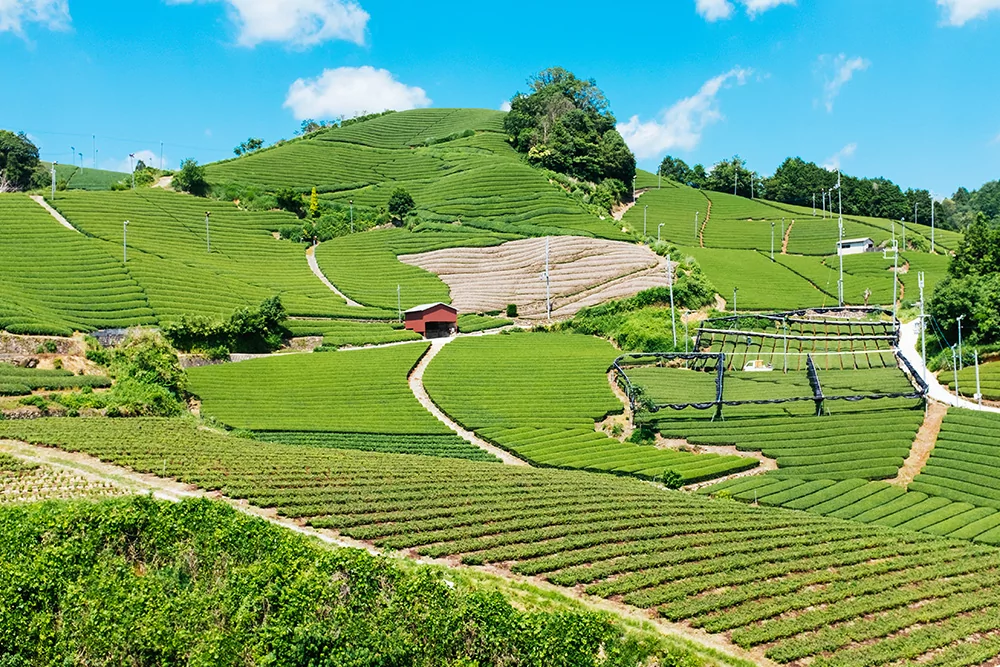
ABOUT WAZUKA
Many famous tea areas reside in Japan but one with the most breathtaking views is situated just an hour outside of Kyoto. The small town of Wazuka is said to have been selected as a tea production area during the Kamakura period (1192-1333), making it one of the oldest tea regions in Japan and is trademarked by the well-organised green hillsides that enclose the town.
Thanks to the climate, especially the low humidity, cooler temperatures and nutrient rich soil, Wazuka-cha is one of the most highly regarded teas in Japan. Over 300 families dedicated to the craft of producing tea still keep this industry alive today, tending to the rows of evergreen tea plants.
Wazuka-cha is famous for being a greenish golden yellow colour that has a unique flavour, fresh but sweet. This is mostly thanks to the Wazuka River that creates a morning mist that runs through the town from east to west.
Photography: Mark Robinson
PURCHASE
D:MATCHA INTRODUCTION
Based in the famous tea town of Wazuka is d:matcha, a company founded by brothers Daiki and Chisei Tanaka in collaboration with farmer Hiroki Aka. Chisei Tanaka and Hiroki Aka are next generation farmers who trained with the master tea farmers in this area to cultivate high quality tea that is sustainable, local, and organic.
Through their great work at d:matcha they have been able to introduce a younger generation to this area, with Daiki and his wife Misato running regular tea tasting workshops from their shop in Wazuka and offering hiking tours and tea picking experiences in the beautiful mountains of Wazuka.
The one hour trip from Kyoto is not treacherous by any means, only two trains are needed and a short bus journey up to this idyllic rural town. Although a day trip is possible, spending a few days here would be preferable. You can cycle around the island, learn about tea, and taste the special foods here that incorporate the Wazuka-cha, the tea grown here in the town of Wazuka.
I met d:matcha founder Daiki Tanaka in person at his shop in Wazuka and we talked while we hiked to the top of the hillside and stopped at one of his tea farms in this area. Daiki is from Tokyo, so it was great to hear his thoughts on the local community and the farmers who tend to the tea. As the farmers have an average age of 66 years old, one of Daiki’s many goals is to bring a younger generation in to the community to appreciate tea culture. Many of thoughts echo mine, especially in regards to the craftsmen of Japan and how many of these important skills and traditions are being lost from the lack of succession within families.
After our hike to the top of the mountains with beautiful views overlooking the town, we picked a selection of fresh tea from the d:match tea farm. When we returned it was great to taste a selection of different tea and learn all about the tea culture in Japan. Here are a selection of photos from our trip. We are proud to represent d:matcha at OEN shop and offer a selection of high quality matcha and sencha.
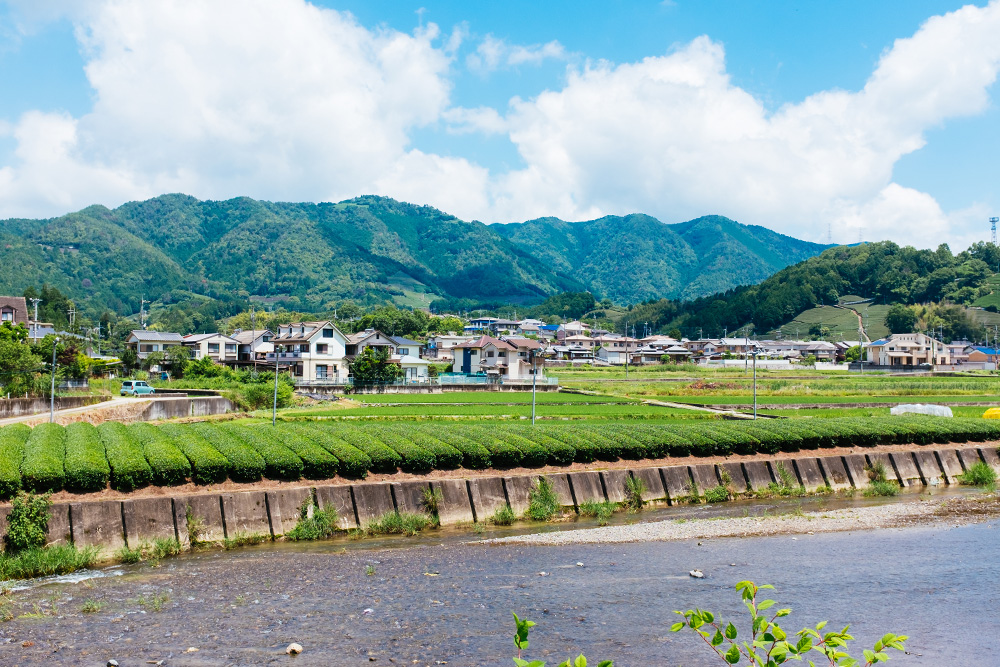
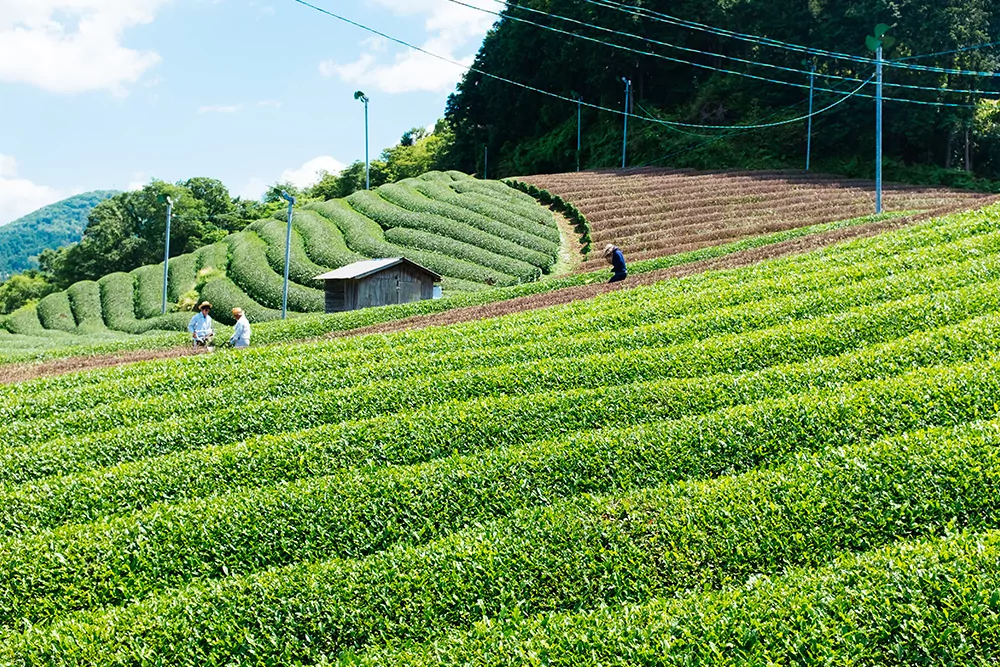
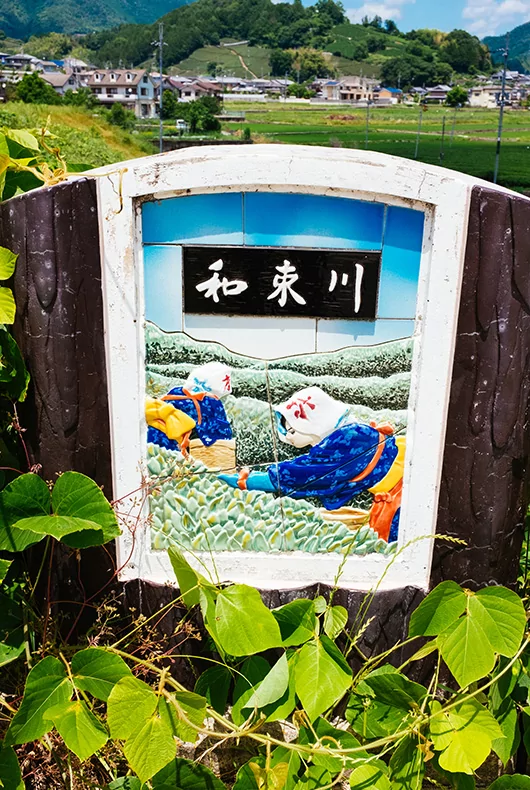
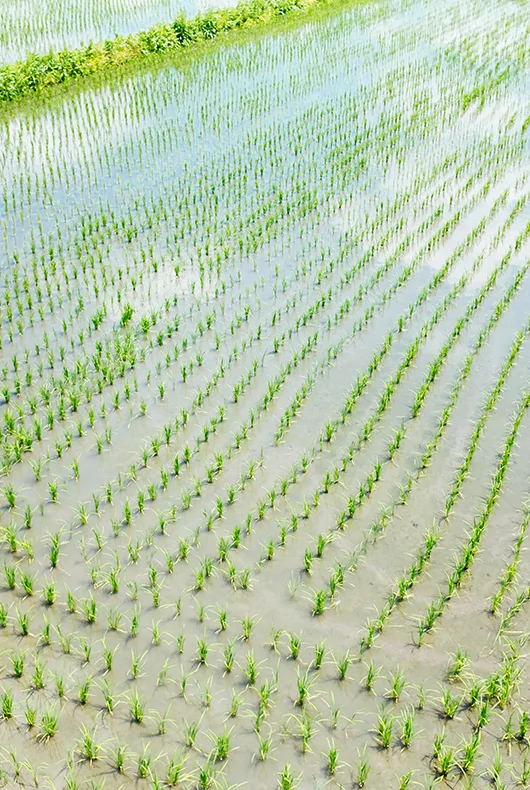
The farmers work in the fields to slowly cut the top of the tea bushes. These fresh leaves will be taken to be steamed, cut and rolled. The bushes will be left so that they can regrow their leaves throughout the year. Approximately three cuts can be made each year on one bush.
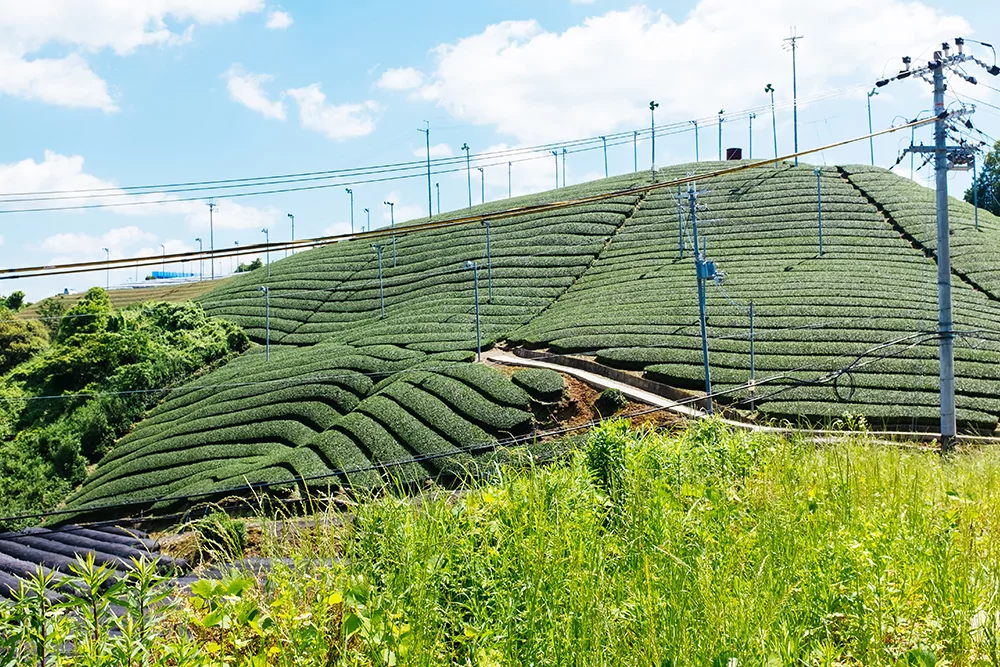
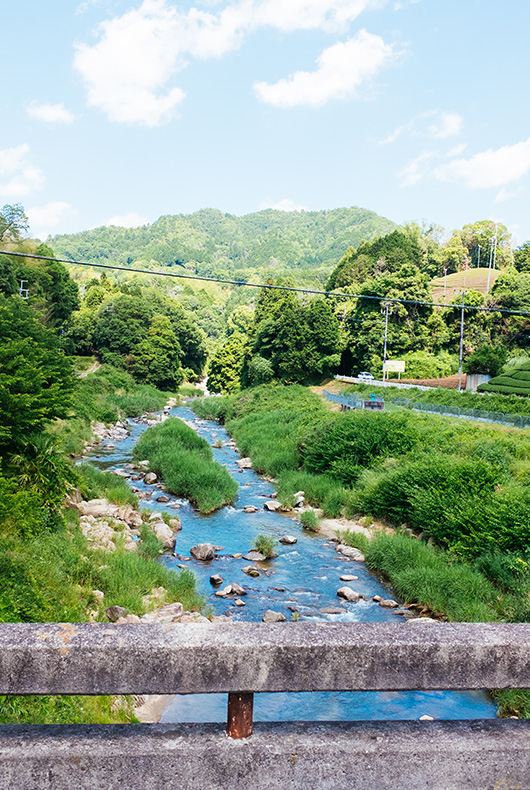
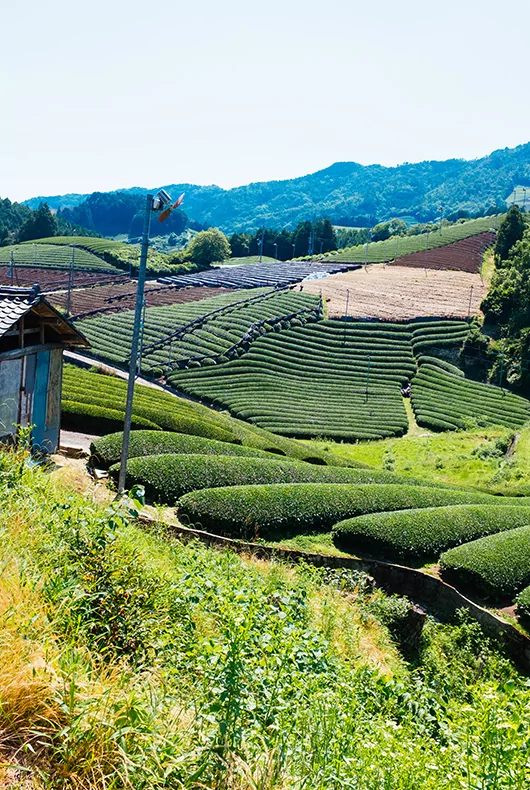
The Wazuka River runs through the centre of the town, the surrounding trees capture the moisture and make the perfect environment for tea to grow.
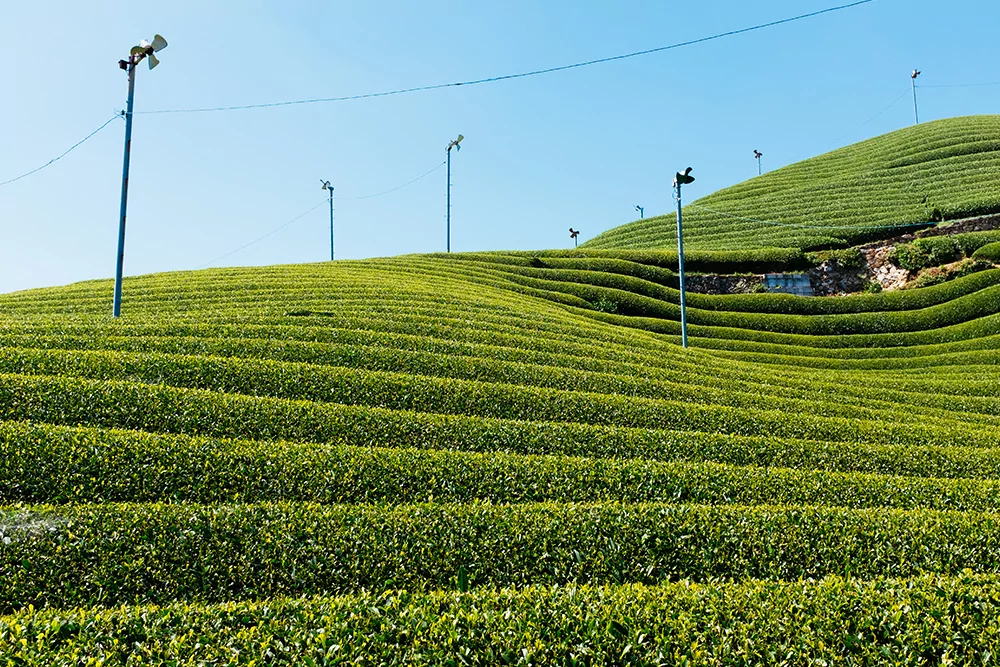
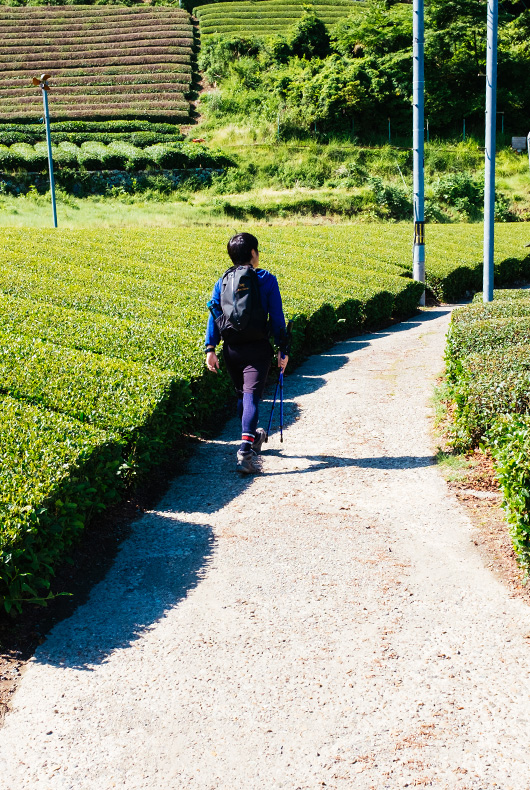
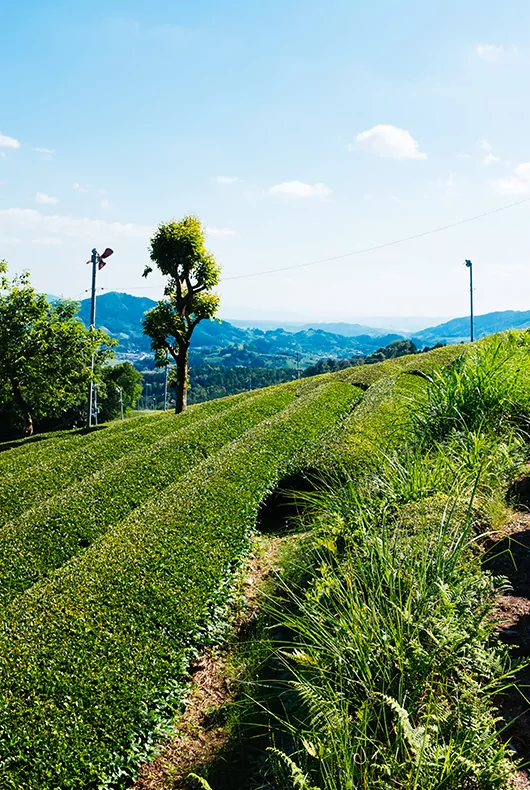
Hiking with d:matcha founder Daiki Tanaka in the mountains of Wazuka. A steep incline, but worth it for the breathtaking views.
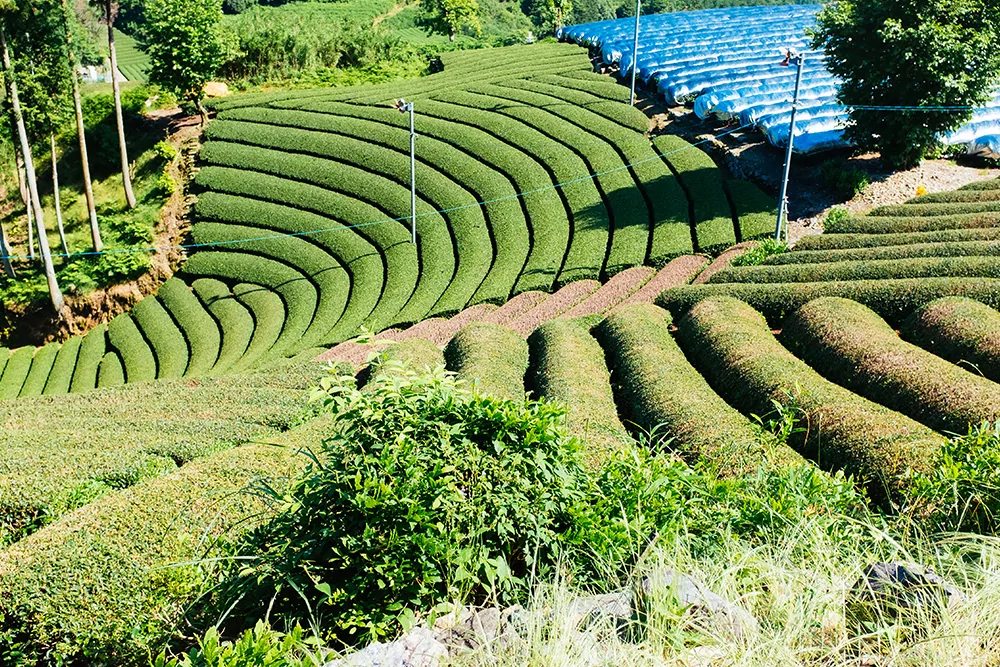
Wazuka is famously known for the attention to detail taken by the Japanese farmers to produce the best possible tea. They have created these unique patterns on the hillside similar to pieces of abstract art.
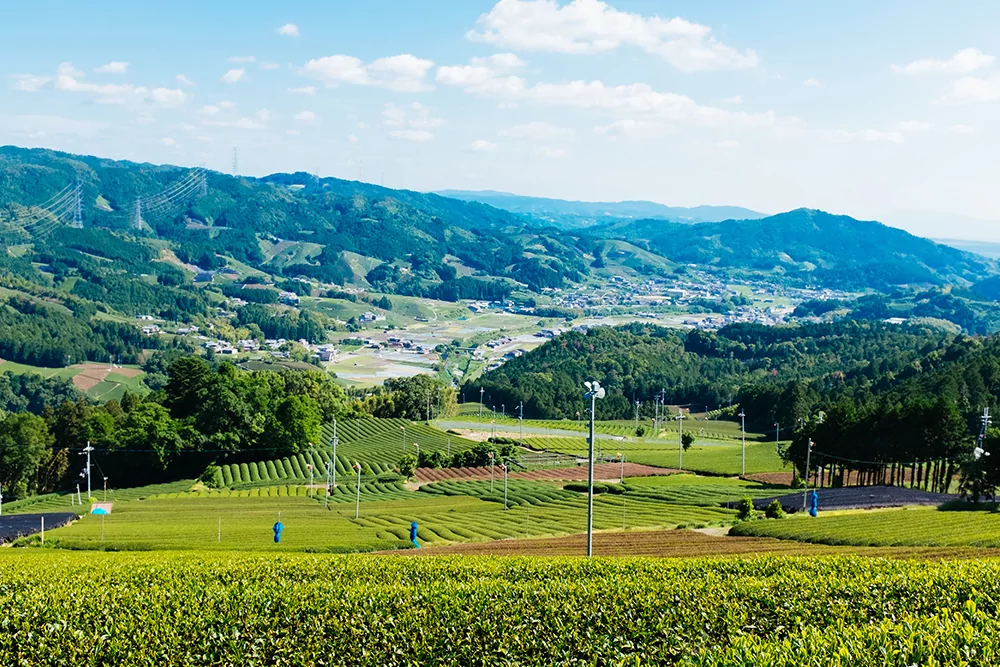
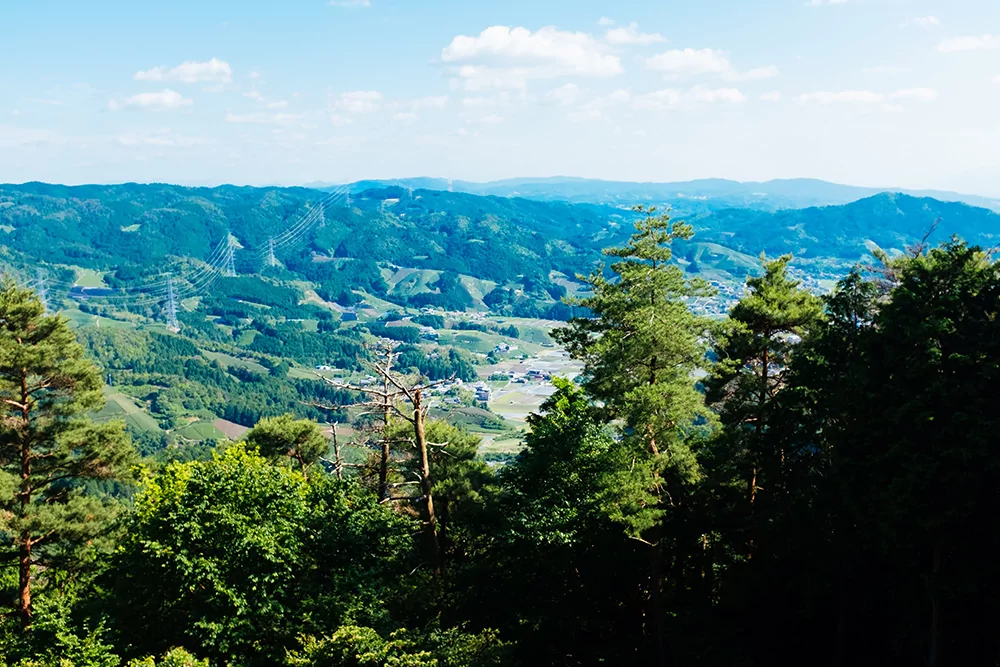
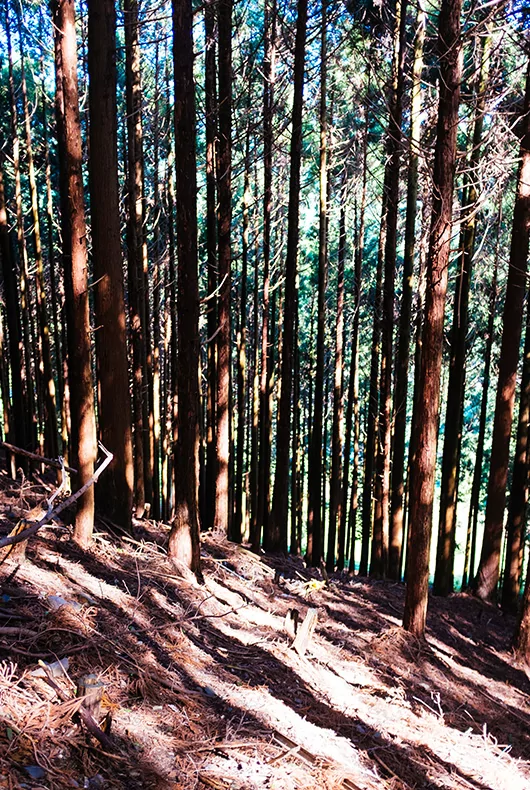
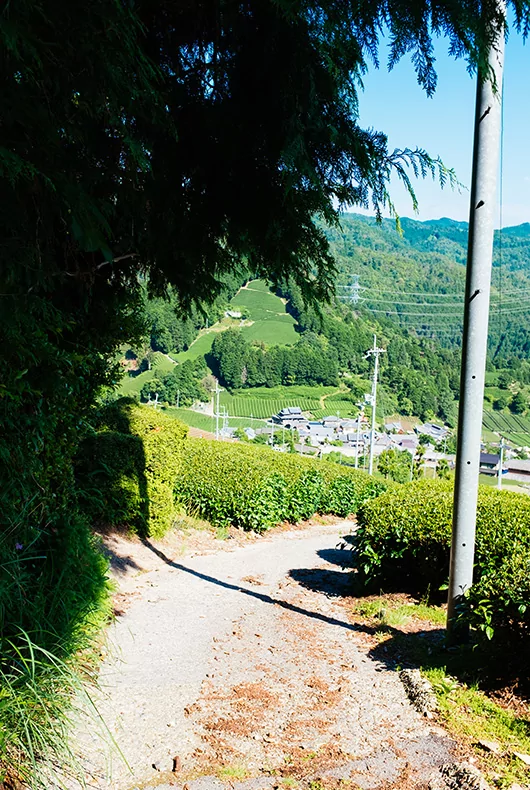
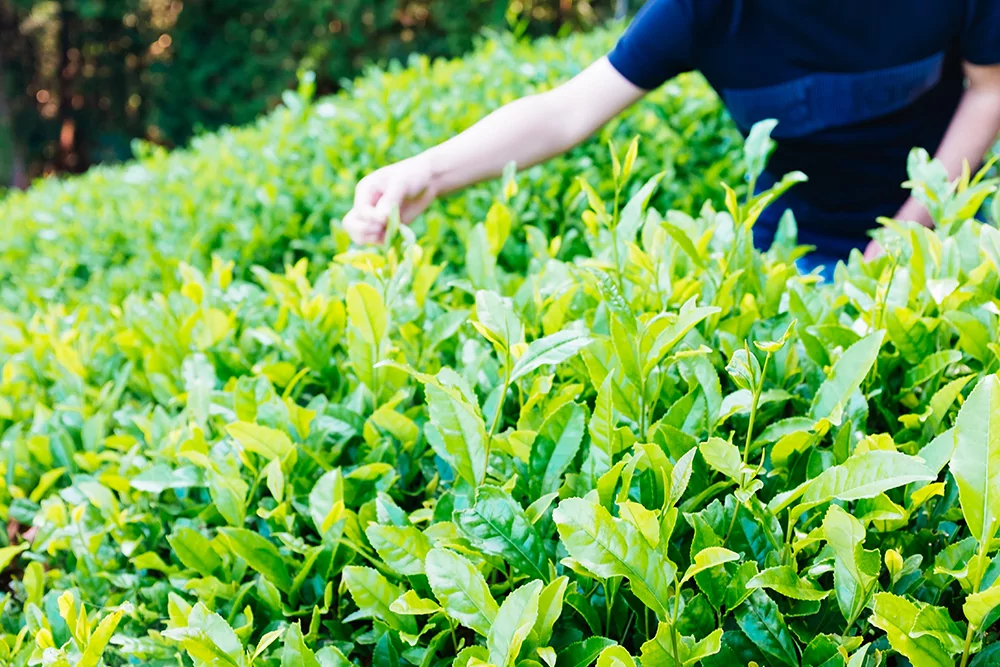
Tea picking in Wazuka is a special experience. The smaller leaves are less bitter and have a sweeter taste, but bigger leaves can be mixed in to create more of a bitterness.
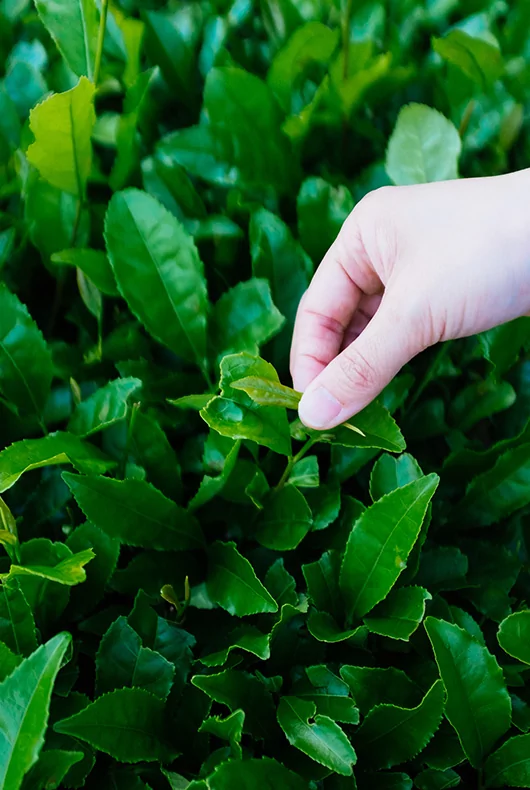
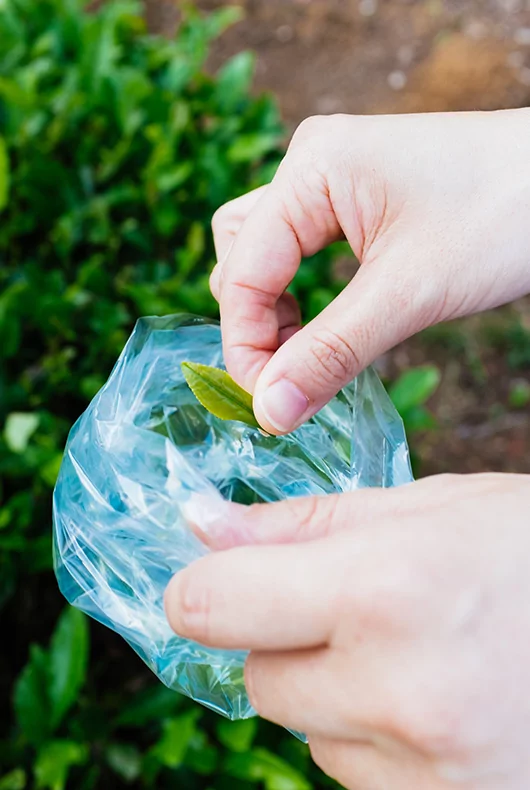
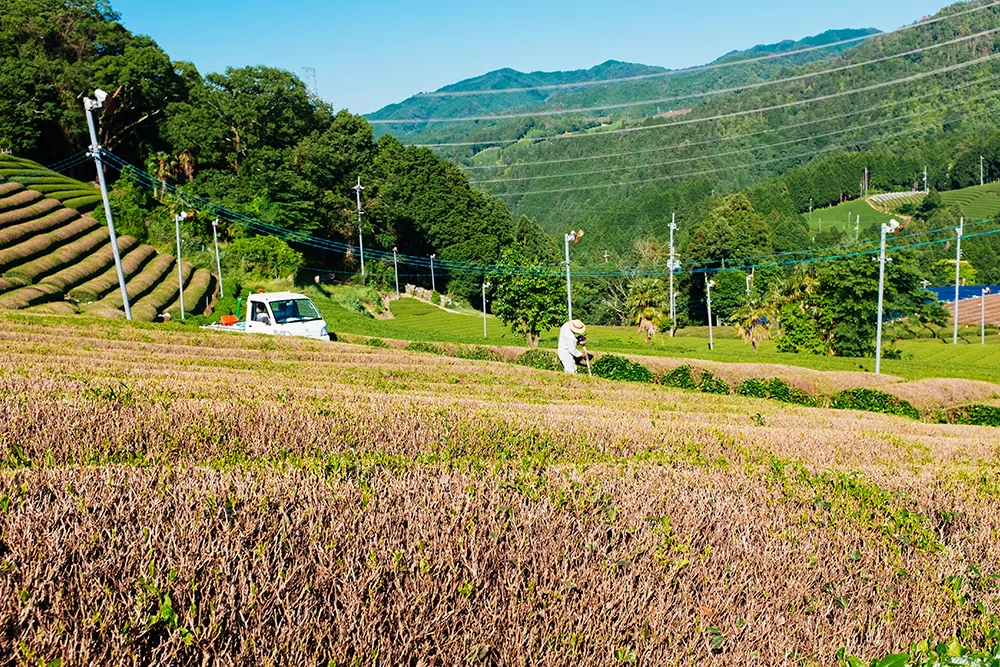
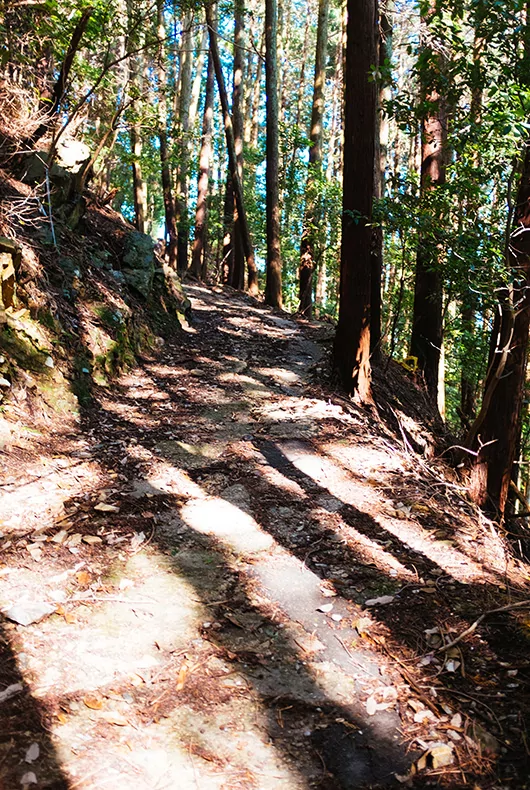
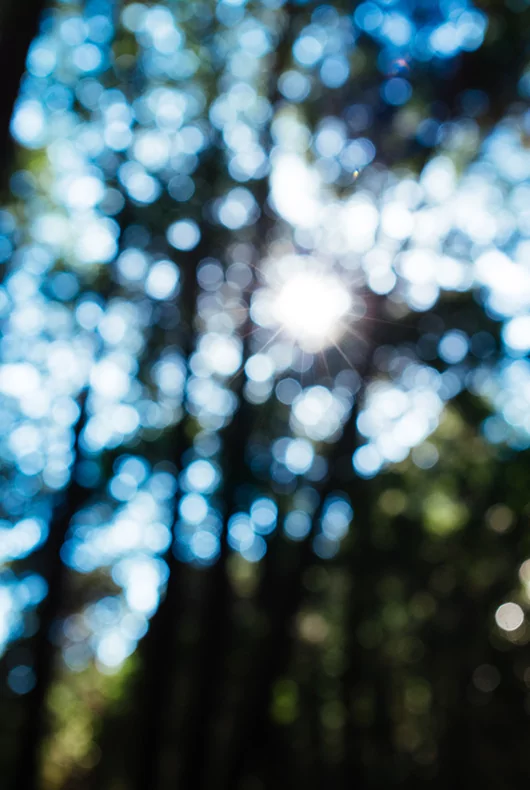
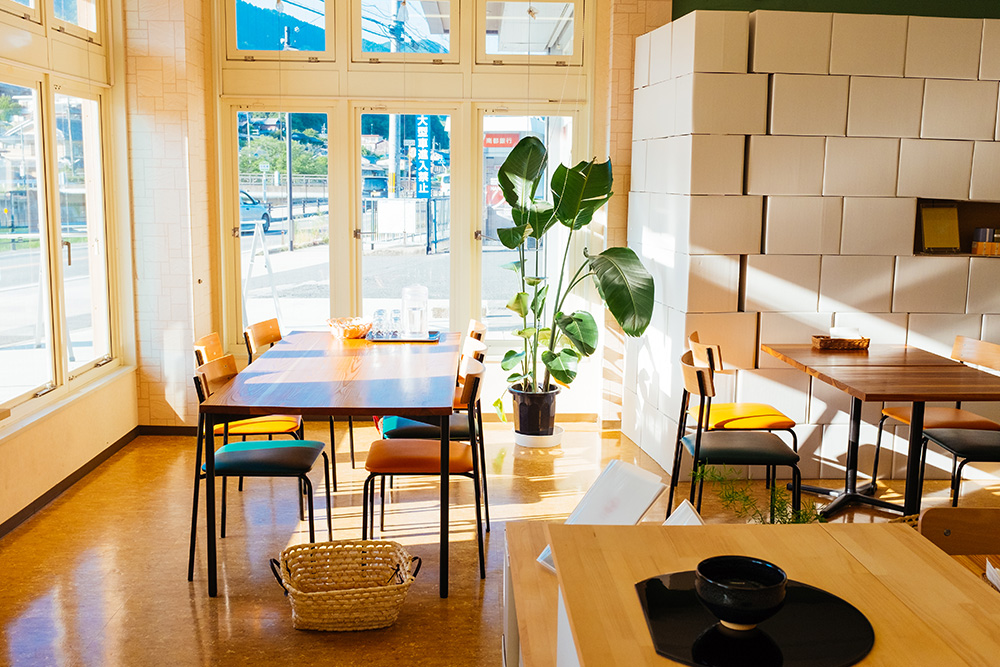
A look inside the d:matcha shop in Wazuka, Kyoto. Here they stock a fresh selection of tea straight from the hills. You can also enjoy beautiful foods infused with matcha and other green tea.
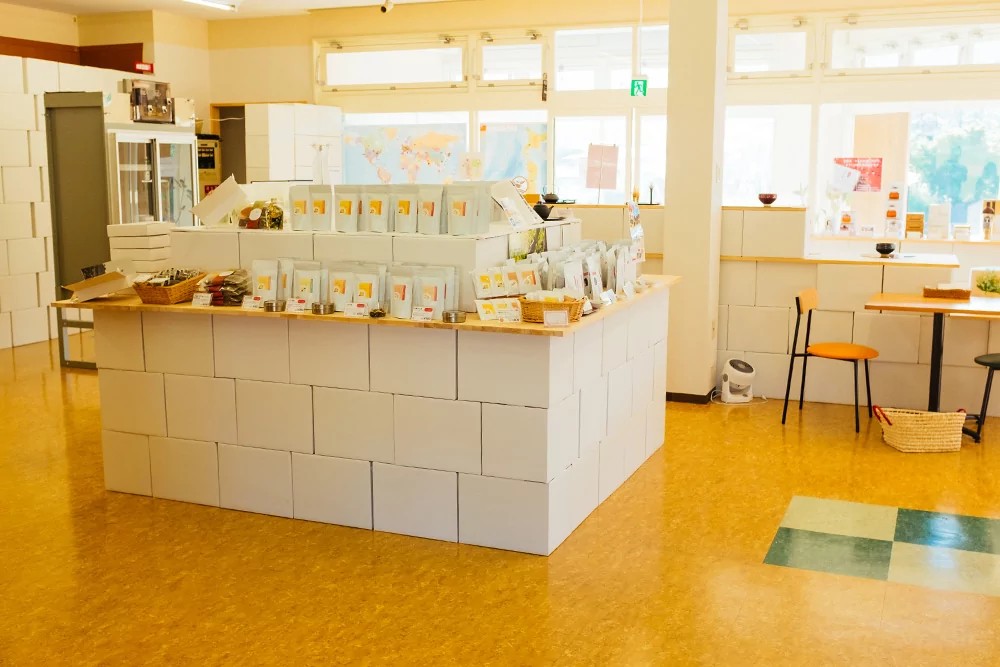
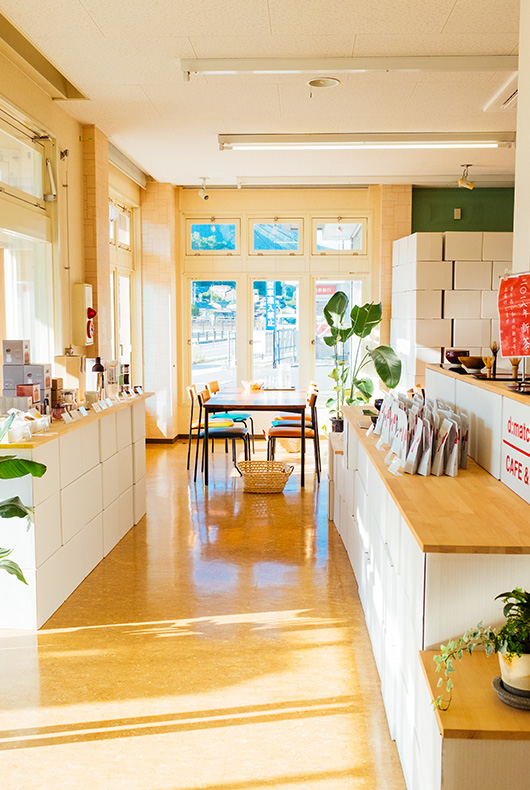
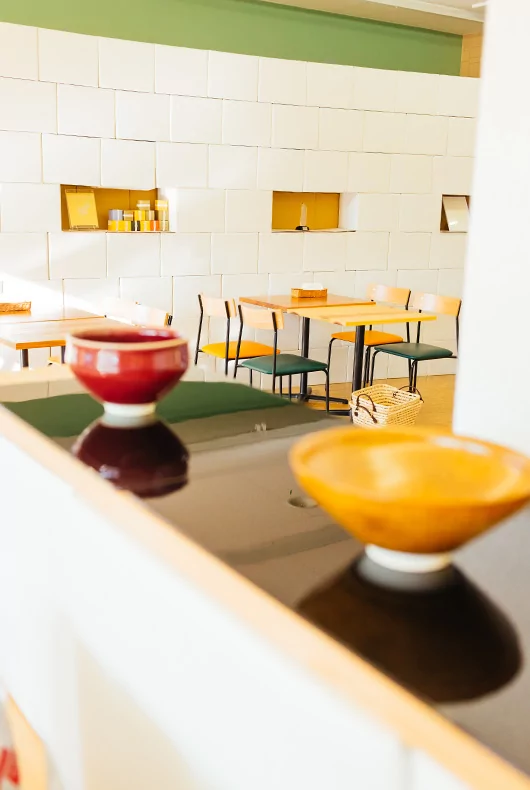
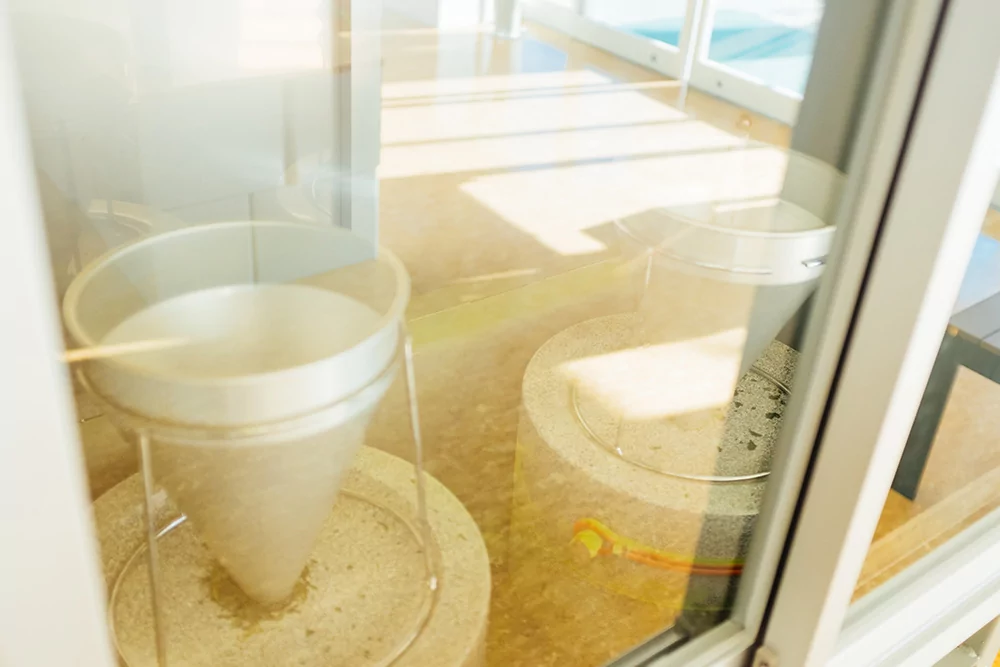
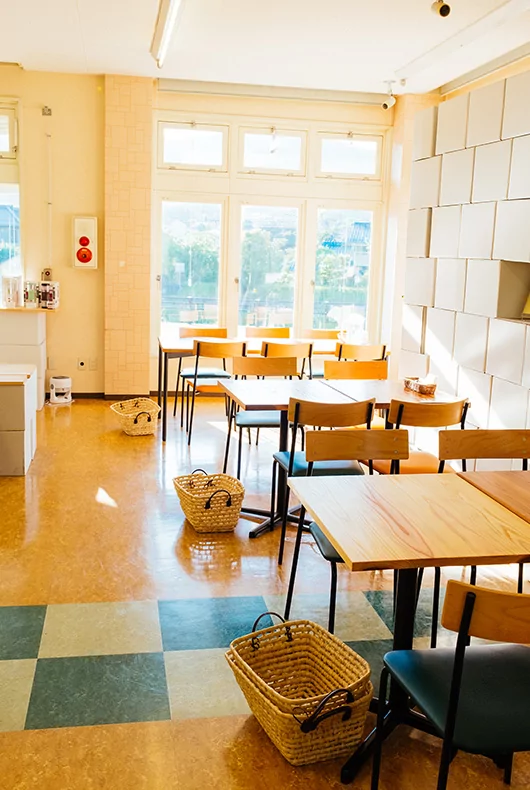
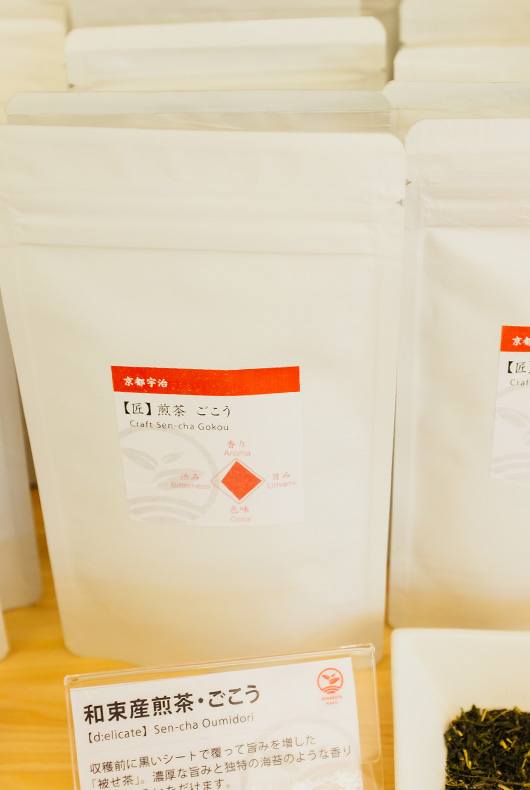
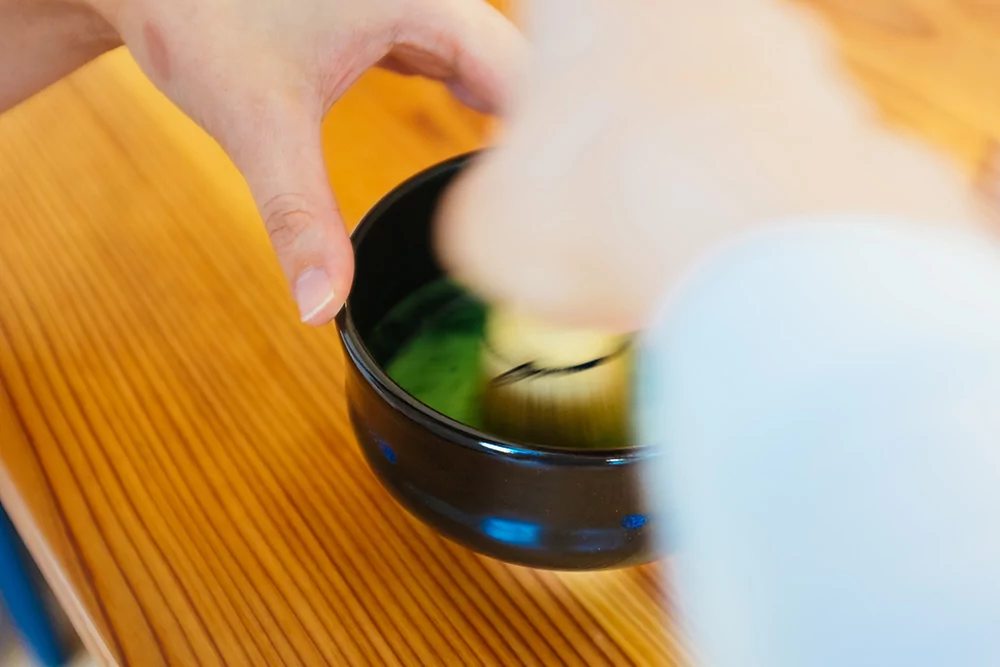
Using a special bamboo whisk called a ‘chasen’ to mix the matcha powder to make matcha tea. The pattern of moving back and forward creates a frothy green matcha.
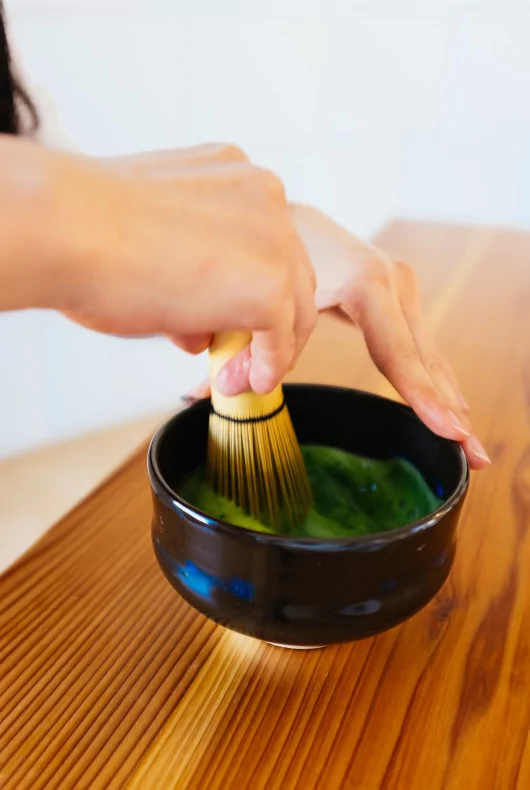
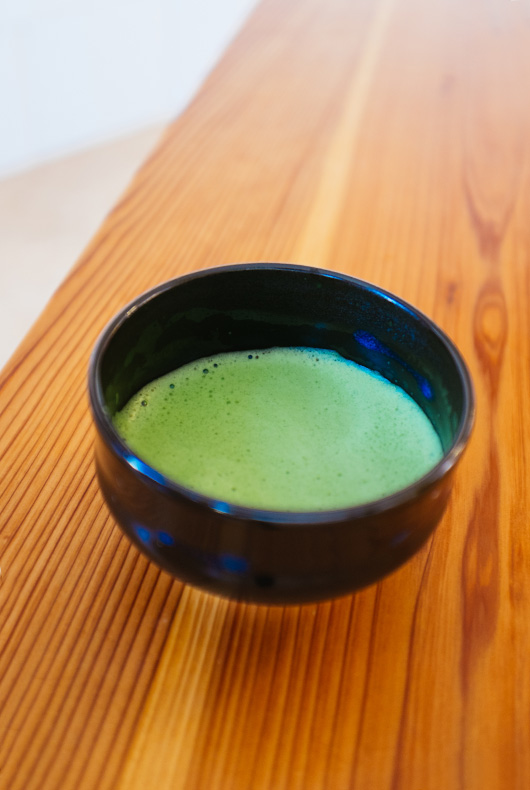
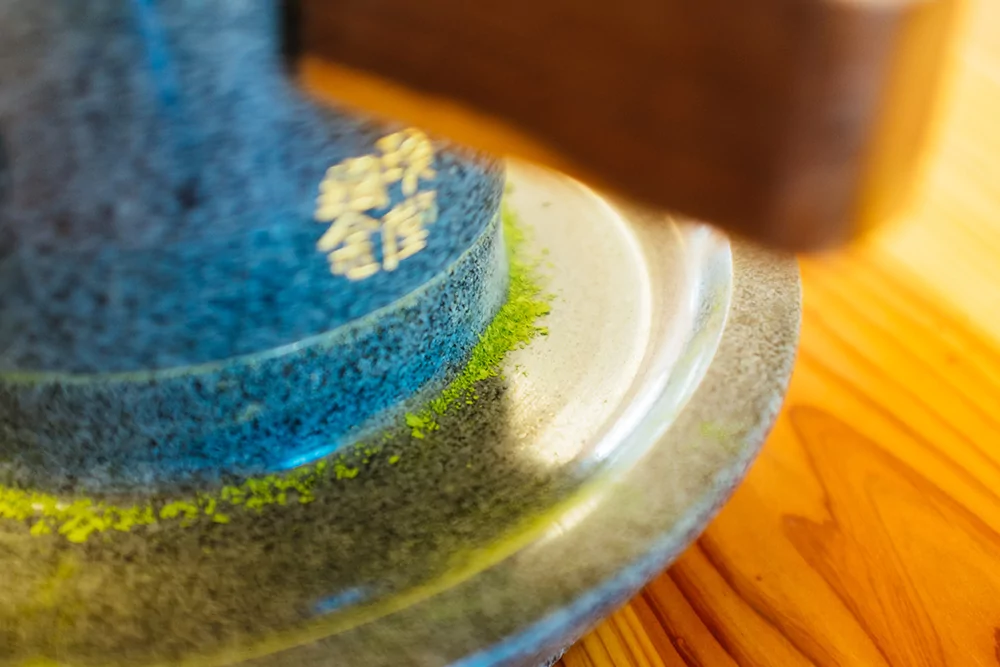
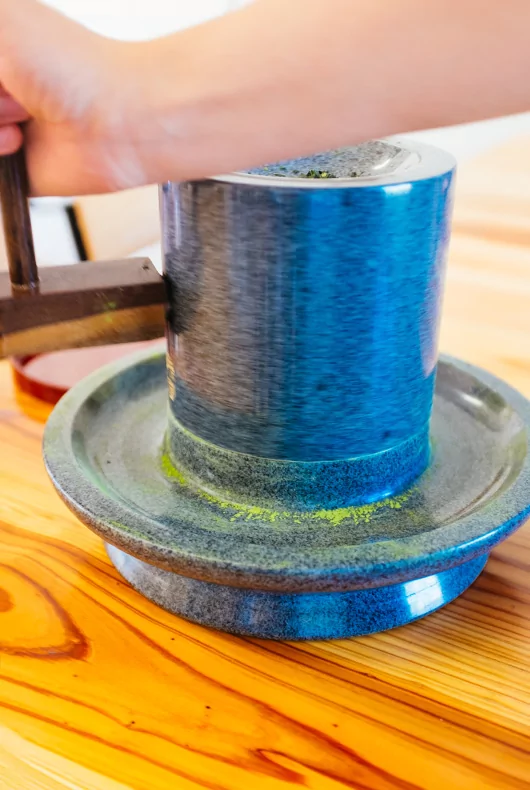
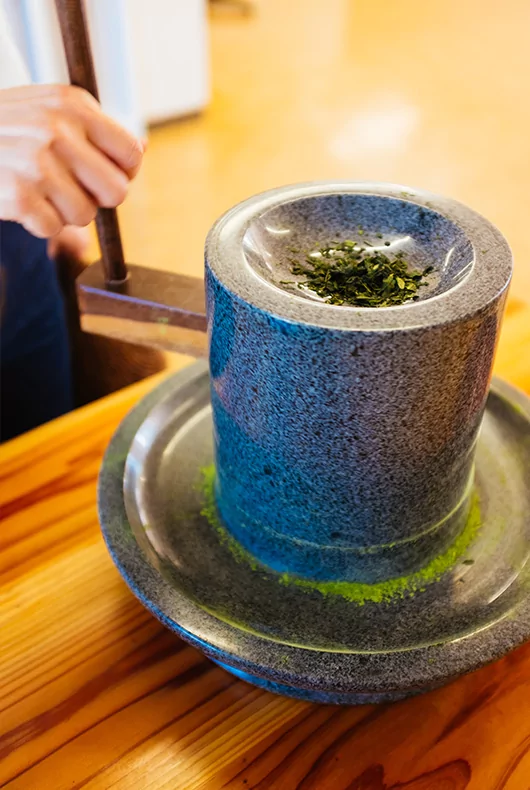
Matcha is made by taking the tea leaves and grinding them on a stone mill. This stone mill creates a fine green powder that contains all the healthy nutrients of the tea plant.
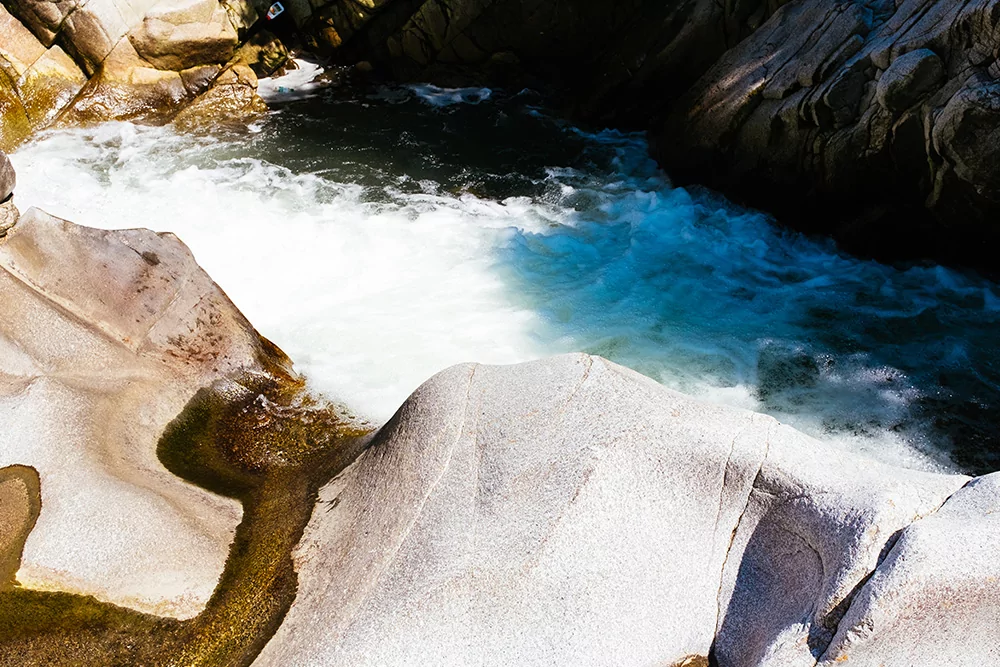
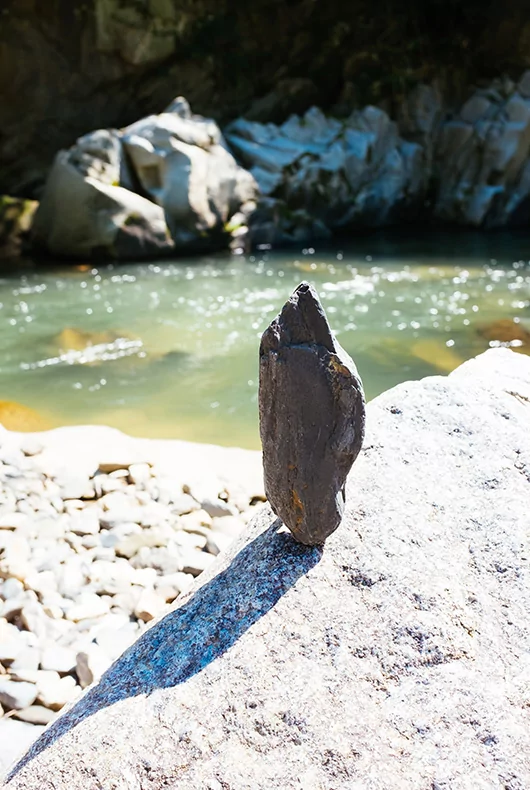
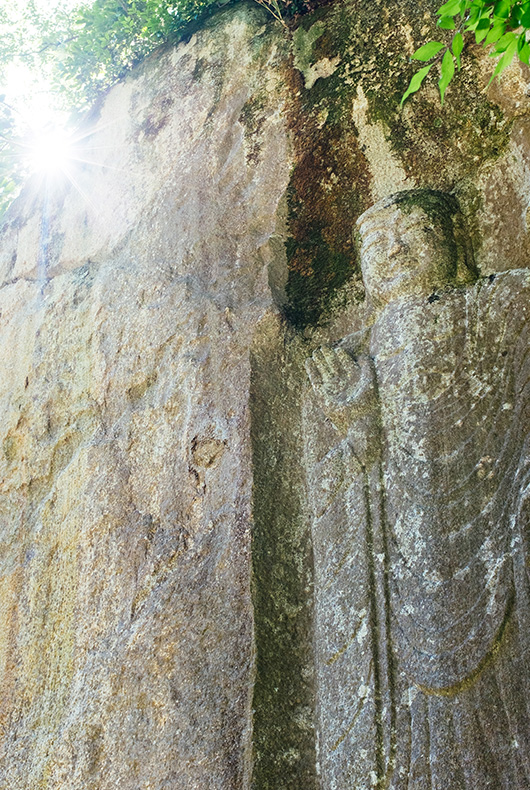
‘Miroku Magai-butsu’ has been engraved in to the cliff looking down upon the Wazuka River. It was carved on this gigantic granite stone in April, 1300.
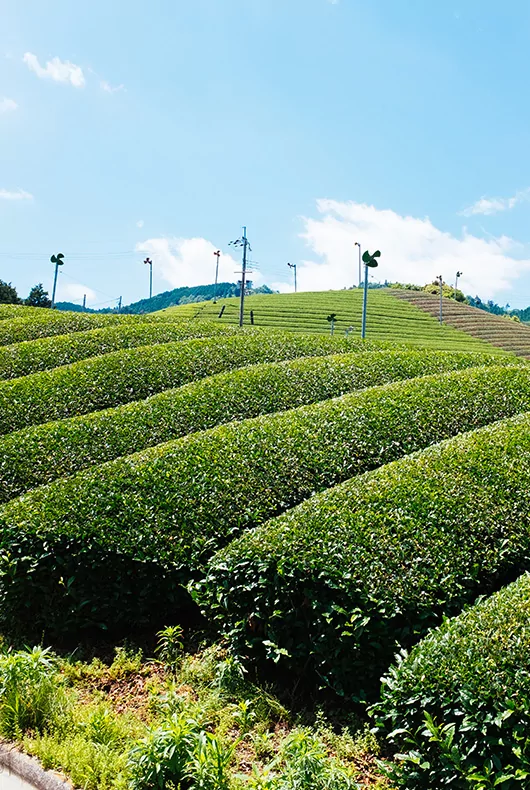
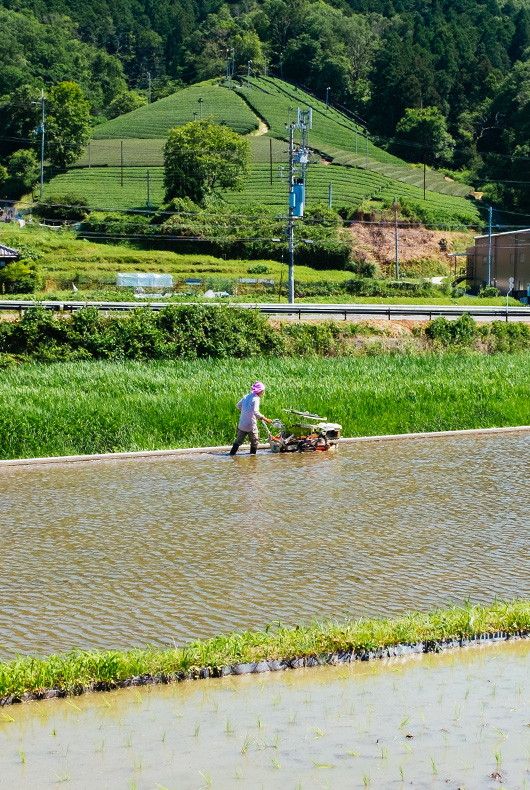
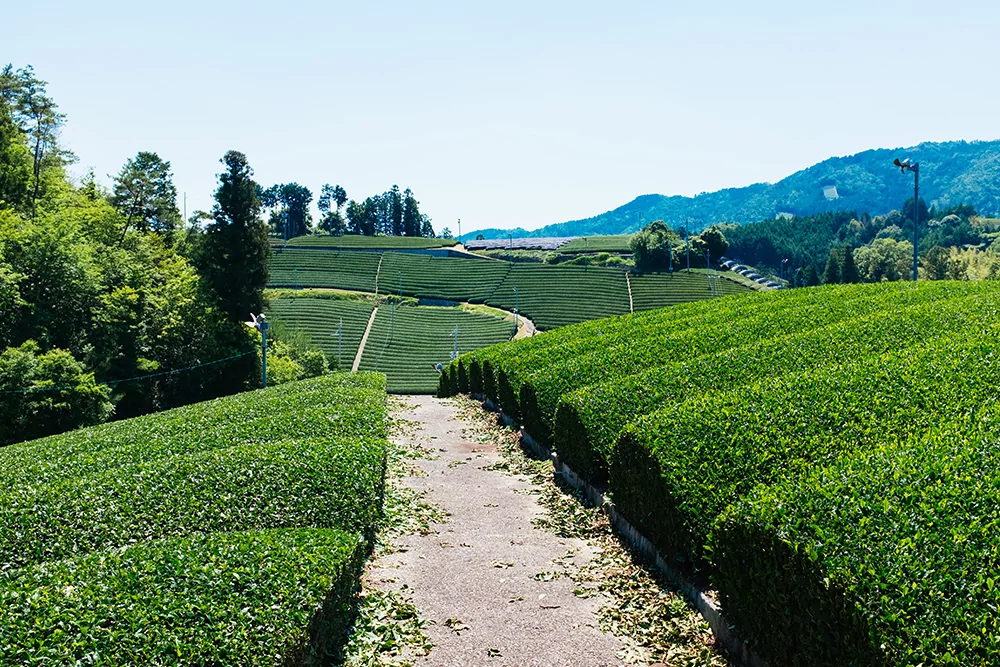
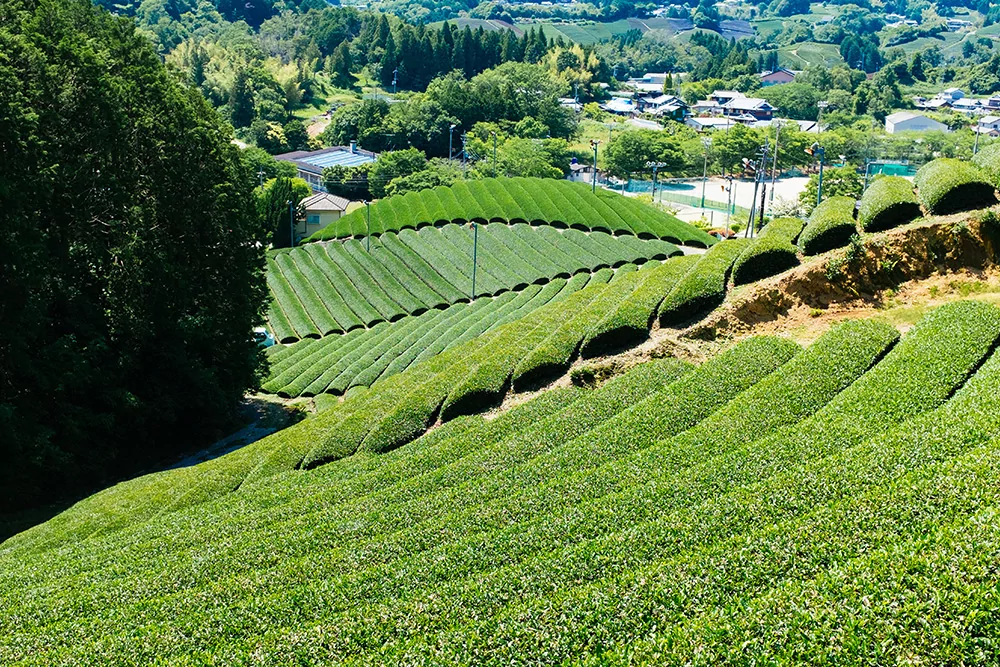
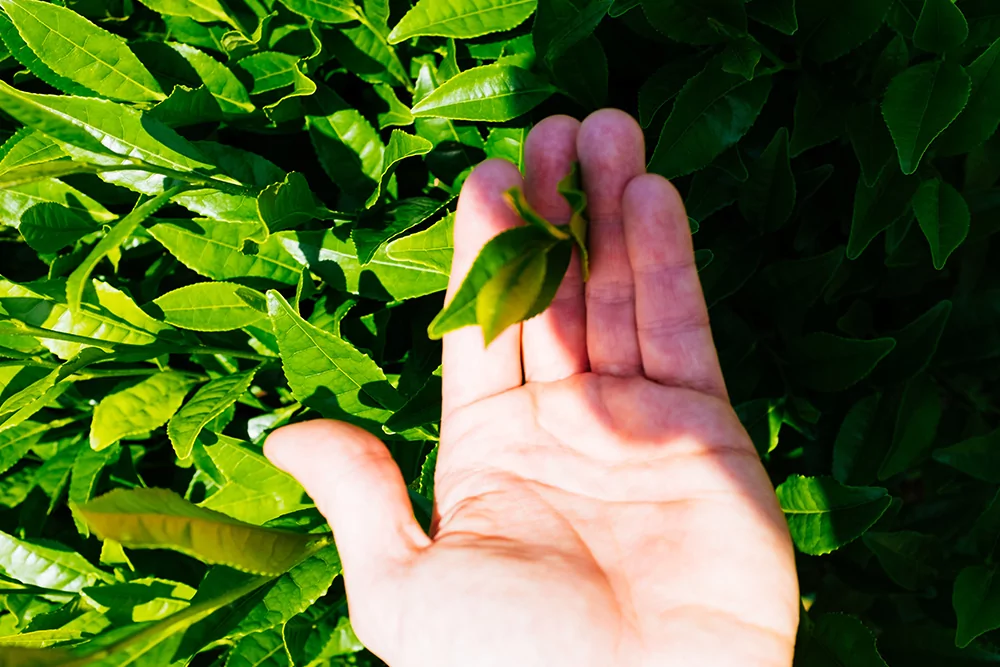
INTERVIEW WITH DAIKI TANAKA OF D:MATCHA
HEY DAIKI! COULD YOU TELL US A LITTLE BIT ABOUT YOURSELF AND WHAT YOU DO?
Thank you for introducing me. I am Daiki Tanaka, the founder and owner of D-matcha CO., LTD.
We are producing Japanese green tea in Wazuka, Kyoto. This is the biggest production site of Uji green tea, the most premium brand of Japanese green tea. In addition to producing green tea we are running a cafe to teach customers about the attraction behind Japanese green tea.
WHAT MADE YOU START D:MATCHA AND WHAT IS THE CONCEPT BEHIND THE COMPANY?
I started with a vision rooted in an appreciation for the unique quality of Japanese tea and a desire to revitalize an industry threatened by Japan’s ageing society. With a passion for authenticity and holistic innovation, we offer the highest quality Japanese green tea selections to current and future generations.
WHAT DID YOU DO BEFORE D:MATCHA? DID YOU HAVE ANY OTHER PLANS BEFORE YOU HELPED START THIS COMPANY?
I majored in Agricultural Economics at Kyoto University, so I wanted to do something related with Japanese agriculture. When I was 26 I became the CEO of a doughnut chain, at that time I needed to eat at least three doughnuts a day so I came up with the idea of starting a Japanese green tea company.
YOU ARE ORIGINALLY FROM TOKYO! SINCE TOKYO AND WAZUKA ARE VERY DIFFERENT WHAT MADE YOU WANT TO MOVE TO WAZUKA AND START D:MATCHA? WAS THERE AN INITIAL SOURCE OF INSPIRATION?
After I decided to start this business in the green tea industry we visited many green tea production sites in Japan. The main reason why we chose Wazuka is the quality of the tea.
The landscape of Wazuka creates a higher quality tea. Uji tea has the highest quality and brand recognition for green tea in the world. There is Sencha, Matcha, Gyokuro, Kabuse-cha and many others. Approximately 40% of all Uji tea is produced in the town of Wazuka, so when you drink Uji tea you are most probably drinking Uji tea that’s been grown in Wazuka. Since there is a river that runs through the centre of the town and a forest that surrounds it there is a “fog” that is created. This fog is the secret to the sweetness/umami of the green tea produced in Wazuka.
Farmers are always competing with each other. When it comes to green tea we are processing it the same day by ourselves. In other production sites in Japan, after farmers process the tea it is difficult for them to sell it all with just the farmer’s name. However, in Wazuka, we farmers can sell the leaves with our own name and try to achieve a better quality tea through trial and error.
WAS IT A SHOCK WHEN YOU FIRST MOVED HERE?
There were shocks but they were all good. The air is fresh and the water is tasty. If you can use the internet and you can drive a car then nothing is too inconvenient.
WHAT ARE THE POSITIVES AND NEGATIVES OF BEING BASED IN WAZUKA?
Some positives are that for the production of higher quality Japanese green tea Wazuka is the one of best locations in Japan. Even though Wazuka is a countryside location people can come from Nara station within 30 minutes and from Kyoto and Osaka in around 60 minutes. So it’s very easy to welcome people from these big cities.
One negative is that we often have to visit other cities and cool stores to improve the design and how we run our cafe.
D:MATCHA FEELS VERY PERSONAL. WAS IT YOUR INTENTION TO HAVE THE FEEL OF HAVING A FAMILY RUN BUSINESS?
I am very lucky. Although my parents are not farmers my other family members have always been interested in agriculture. My wife also studied agriculture and her family is currently running an orange farm in Japan. My younger brother also studied agriculture and spends most of his time running the tea farm for d:matcha.
IN WAZUKA IT SEEMS LIKE THE OLDER GENERATION ARE STILL RUNNING AND WORKING ON THE FARMS. DO YOU HOPE TO PASS ON YOUR KNOWLEDGE TO A YOUNGER GENERATION?
Yes, actually they have been passing their knowledge down to us. My younger brother and one other staff member worked for a big farmer who trained them how to produce tea. The average age of tea farmers in Wazuka is around 65. The elder farmers also think they need to succeed their skill to continue the craft, which is more than 800 years old in history.
THERE ARE A LOT OF STEPS WHEN IT COMES TO PRODUCING TEA, FROM CULTIVATING IT ON YOUR FARM TO BRINGING IT IN TO YOUR SHOP TO SELL AND USE. WHAT ARE THE BIGGEST OBSTACLES YOU HAVE OVERCOME SO FAR?
In the beginning it was hard to obtain the reliability from land owners (mostly farmers) to have our own tea farm here in Wazuka. For the owners the land is their family asset because their ancestors cultivated their land by the manual labour. We started tea farming on the farm that no one wanted to cultivate and showed our diligent attitude. Now we can run around 2 hectares of tea farm, the average for farmers who are producing in Wazuka.
THERE ARE MANY TYPES OF TEA. WHAT ARE YOUR FAVOURITES?
What tea I like depends on how I feel. In the morning I prefer to drink matcha. Especially Samidori / Okumidori as it wakes me up. Matcha has more caffeine than coffee, but matcha also has theanine which has the effect of easing tension and anxiety. Due to the cancelling out effect of caffeine and theanine we can gradually enjoy this feeling of waking up throughout the day.
At noon, I enjoy Sen-cha. Mostly Yabukita as I find it very refreshing. At night, I prefer Houji-cha as it has a low amount of caffeine.
THERE IS A BIG COFFEE CULTURE IN JAPAN AND I ALWAYS GET THE FEELING THAT YOUNGER PEOPLE SEE TEA AS ‘OLD FASHIONED’ OR ORDINARY. WHY DO YOU THINK THIS IS? DO YOU THINK PEOPLE WILL SHIFT BACK TO TEA IN THE FUTURE?
Not many young people know the way to brew Japanese green tea. However, once they know the taste, they start to like it a lot in our cafe. In addition to this, they start to enjoy tea in fashionable way such as single origin, using new types of tea pods. I think we also need to propose a new ways in order to attract them to tea culture.
WHAT THINGS DO YOU LIKE TO DO OUTSIDE OF WORK?
I like travelling, especially scuba diving. And of course, tea!
HOW DO YOU LOOK TO EXPAND D:MATCH IN THE FUTURE? DO YOU HAVE ANY PLANS THAT YOU CAN TELL US ABOUT?
We would like Wazuka to be the famous production site for tea, much like Champagne in wine industry. To do this we are working with the Wazuka government to create a certain rule to make a brand of Wazuka tea.
In addition to that, by using our brand d:matcha we are showcasing this tea and hope to educate people all over the world. In June 2018, we launched our first store in Cebu, Philippines.
